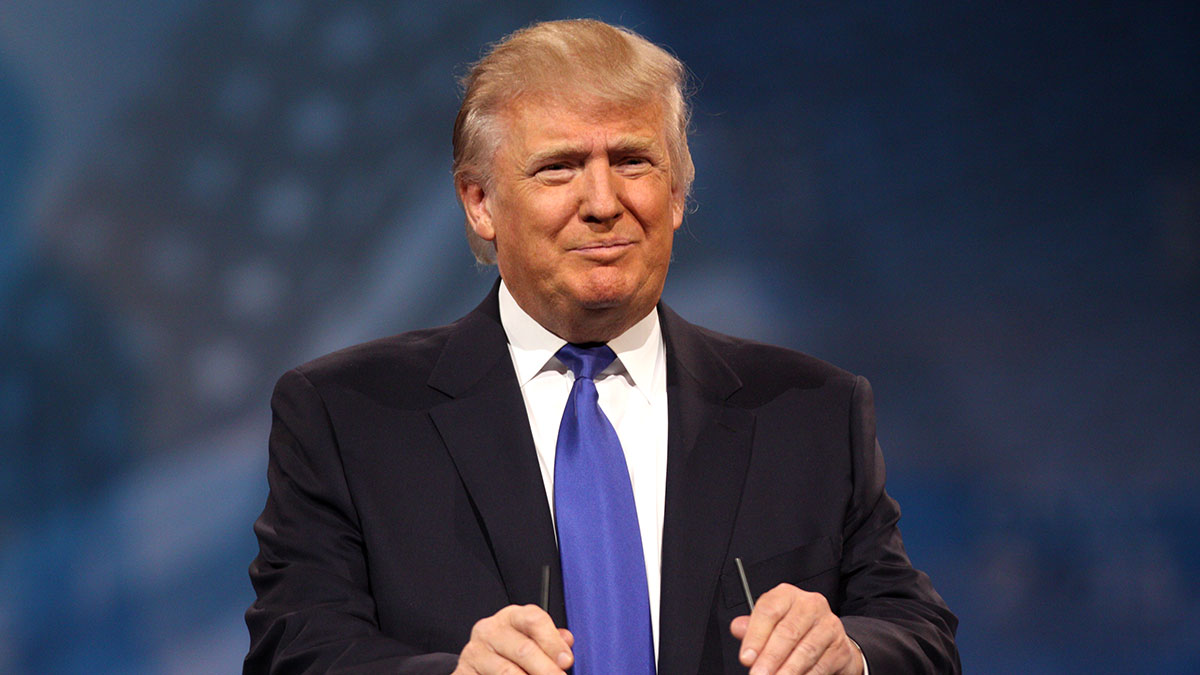Ask a Prof: On a scale of one to 10, how worried are you about Trump’s presidency?
 Supplied — Gage Skidmore
Supplied — Gage SkidmoreDonald Trump shocked the world last night after winning the United States’ presidential election in one of the biggest political upsets in American history.
The nation’s 45th president’s goal to “make America great again” is backed by a two-point platform of building a wall at United States-Mexico border and repealing Obamacare.
While the popular vote went to Democratic candidate Hillary Clinton and her more expansive platform — which touched on gun violence prevention, strengthening of K-12 education, racial injustice, and a number of other topics — it wasn’t enough to win the country.
Forecasters, such as those at The Economist, predicted a Hillary win. And so did Greg Anderson, an Associate Professor in the University of Alberta’s Department of Political Science. As specialist in United States-Canada relations and international politics, we asked Anderson about his reaction to last night’s results.
The Gateway: On a scale of one to 10, how worried are you about Trump’s presidency?
Greg Anderson: I’m at about a six or seven. It all depends on what happens when Trump assumes office, and what comes out of his administration.
As an American citizen, how does it feel to see Trump become president?
It’s been a gut-wrenching affair. This is a country that’s bitterly divided along race and class. And leading up to the election, we never really talked about at great length about the kinds of things that could be done to fix any of it. Instead, it turned into a bunch of one-liners on the debate stage.
In 2008, you could sort of feel the hair on the back of your neck stand up watching Barack Obama win the presidency. We were in a financial crisis, but people still thought, ‘Oh, this is it. This is the moment.’ We’ve now gone in a completely opposite direction.
People are frustrated, upset, and even outraged about the results. Who is to blame here?
The biggest problem is that the voters have felt that the political parties and systems have left them behind. The institutions weren’t listening very well to what’s going on especially in the midwest, which was profoundly important to Donald Trump last night. His populist, anti-trade message resonated in a big way, and I think people on the coasts of the United States just didn’t have a sense for it.
I think the fact that Clinton didn’t campaign in Wisconsin is also a problem. I think some of the big Hollywood and music stars she trotted out in the last few days backfired by making her seem even more elitist. She also lost three chunks of the coalition that brought Barack Obama to office: young people, African Americans, and Latinos. People never gravitated to her.
So what now? There are a ton of implications to speculate for minorities, global and domestic economies, etc.
If you take him at his word, it looks to me like a dark period. Trump is talking about scrapping the North American Free Trade Agreement (NAFTA). There’s been some debate over whether there’s going to be mass-deportations. The Obama administration has been quietly deporting lots of people already, but whether or not Trump rams that up and builds a wall is an open question. Scrapping NAFTA and building the wall were signature pieces of his campaign, so it’s hard to imagine him backtracking on that.
Do you think he could actually achieve those things though?
I don’t know. I really don’t know. Past experience suggests that unified government — that is, when one party controls the White House, the House of Representatives, and the Senate — doesn’t bode well for a president’s agenda. George W. Bush and Barack Obama both had tough times with unified government, so you can’t exactly say ‘Republicans are in control, and so everything is going to go that way.’
What do you think of criticisms from women, Muslims, and the LGBT community?
There’s a lot of fear. Half the country voted for a more progressive agenda. It’ll be interesting to see if Trump, now that he’s won, will pivot in terms of being more presidential. He sounded the right tones last night by saying he wanted to be president for everybody but we’ll see if can maintain that and not go off the rails.
What does this mean for the younger demographic of Canadians?
It’ll be interesting to see the first meeting between Donald Trump and Justin Trudeau. On one hand, you have this young, progressive beacon of leadership in Ottawa, and then a retrograde form of leadership in Washington in a much more divided country. Young Canadians should hold their breath. Take a look at the Brexit vote, the migrant crisis in Europe, and the rise of the far-right. It’s an ominous time, and rather than having free movement between economies and cultures, you’re seeing walls being put up.
Is there anything good that has come out of all this?
It’s hard to find silver linings in all of this. It’s possible that we’re looking at the realignment of the American political parties, as they don’t represent what they did 20 years ago. Something positive might come out of that — I take Trump to his word that he wants to do right by everybody and now he has to put that into practice. But I’m not cautiously optimistic, because this is a time that has been pretty grim.
In the long term, what amazes me is how resilient American culture and American political institutions are despite being so confrontational. People thought we were going over the edge with Bush in 2000 and that didn’t quite happen, and I don’t think we’re in a period like 1968 where you had American cities burning, Robert F. Kennedy and Martin Luther King Jr. assassinated, and the Vietnam War. We don’t have any of that this time.





This is great. Thank you. One of the things I wondered as the news sunk in this week was ‘what would Anderson think of this?’